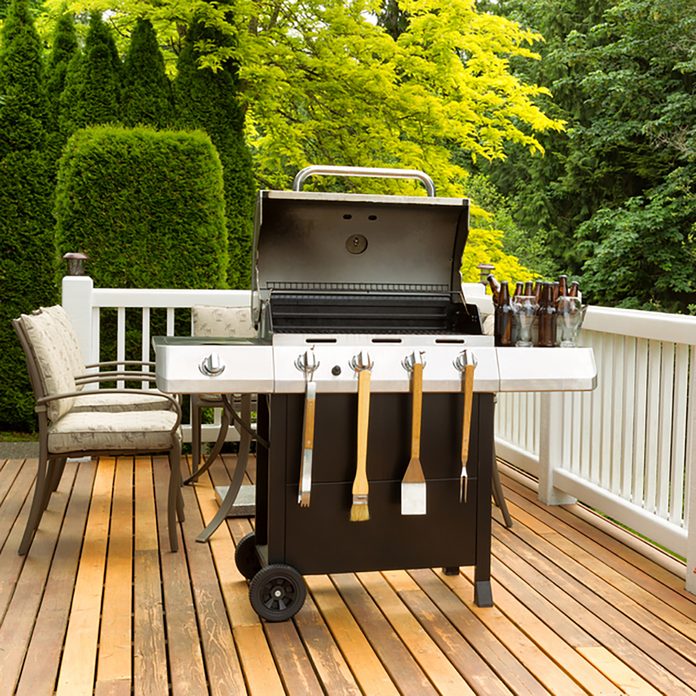
Not Giving the Grill Enough Space
You may to want to stand in the shade when you’re grilling, but having an awning or tree branch too close to the grill can be dangerous. Floating embers can easily spark a fire! Your grill—whether it’s charcoal or gas—should be at least 10 feet away from deck railings and any structures, like your home, garage or sheds.
Give yourself enough space, too, says Greta Gustafson, media relations associate for the American Red Cross. “Use the long-handled tools especially made for cooking on the grill.”
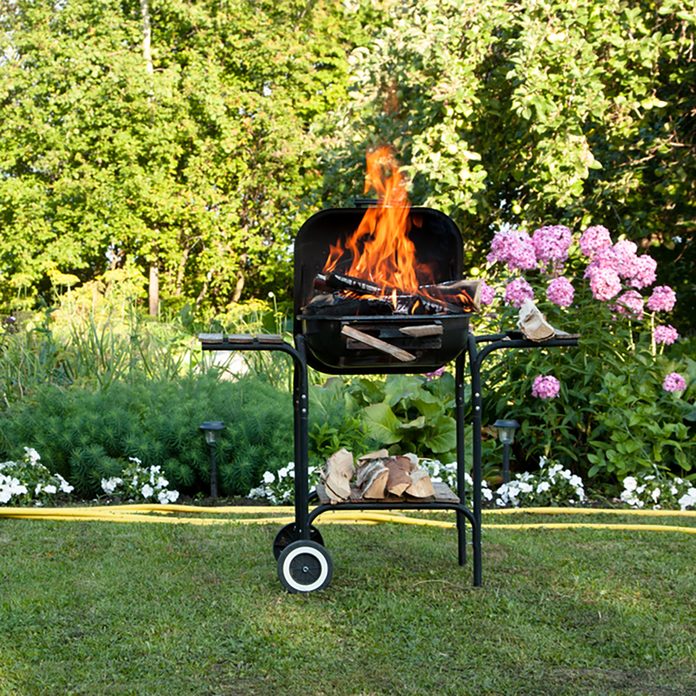
Leaving a Lit Grill Unattended
Everyone wants to be outdoors when the weather is nice, but it’s important that kids and pets don’t play near the grill. It’s too easy for them to bump into or touch part of the hot grill. Never leave the grill unattended, and make sure to keep children at least three feet away from the grill, even after you’re finished cooking.
If you’re new to grilling, this guide explains how to grill just about everything.
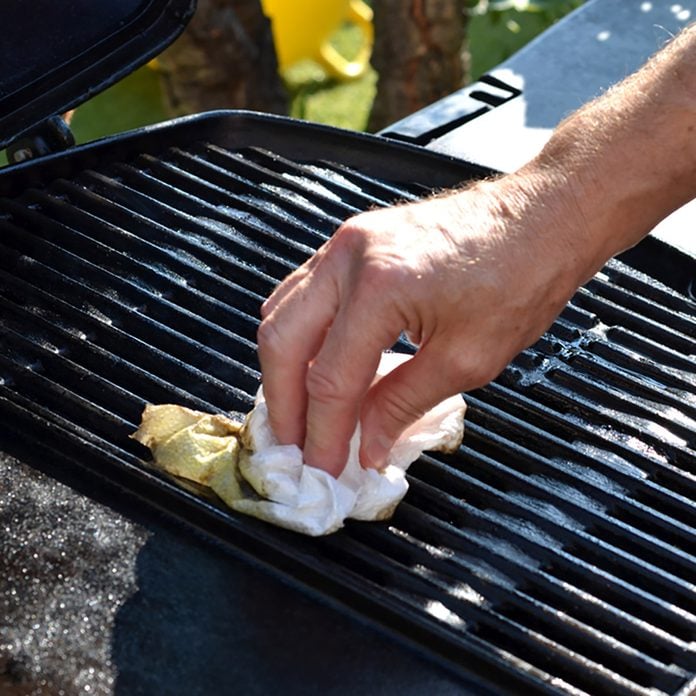
Not Keeping Your Grill Clean
Cleaning the grill isn’t the most glamorous task, and it’s easy to skip past the cleaning and get right to the food. A clean grill produces better-tasting food that won’t stick as easily, and it will reduce your risk of dangerous flare-ups. If you don’t have a wire brush to clean the grill with, use one of these hacks instead.
Test Kitchen tip: Clean the grill every time you use it. Regularly remove grease and fat buildup from the grill grates and drip trays.
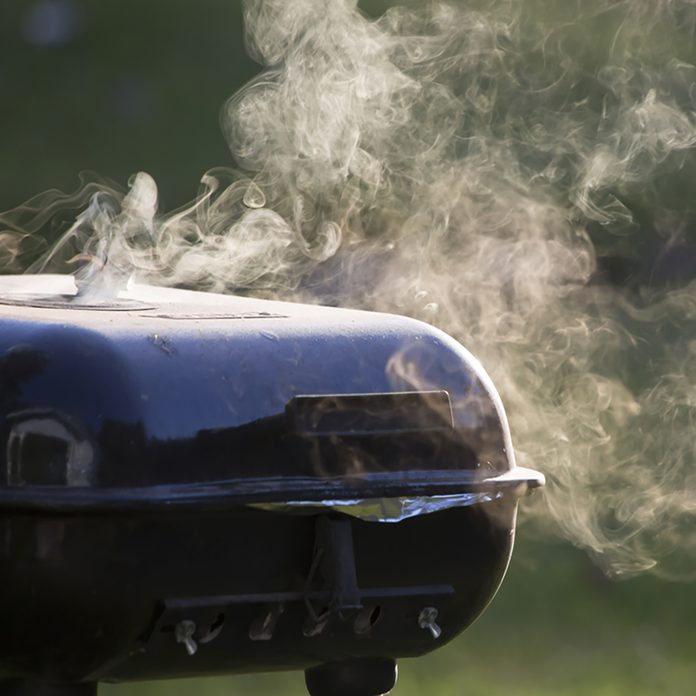
Grilling Indoors
It’s a common mistake to think it’s safe to use a grill, particularly a small one, in your house or garage. In addition to being a fire hazard, grills release carbon monoxide—a colorless, odorless gas that can be deadly. Keep your charcoal and gas grills outside and use an indoor grill pan if the weather isn’t grill-worthy.
If you’re in the market for a new grill, we found the best grills for your cooking style.
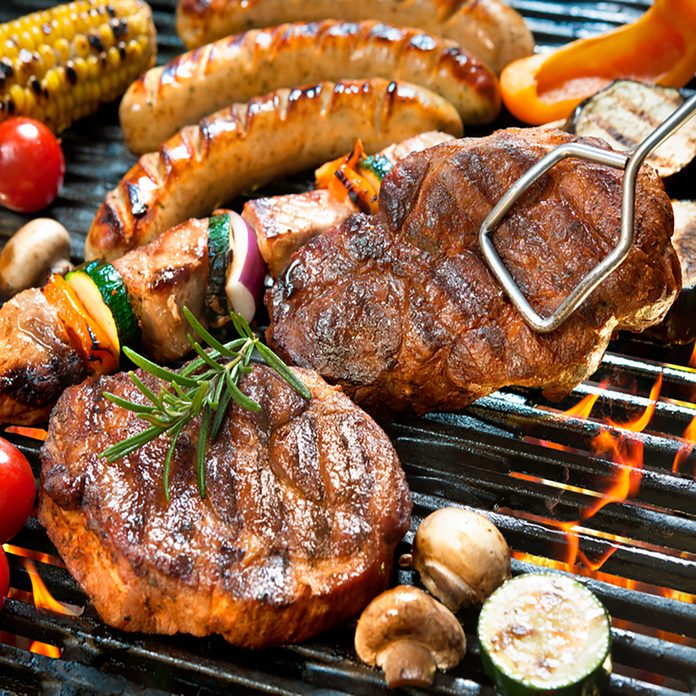
Grilling Too Much Food at Once
It may be tempting to pack the grill full of food, but flare-ups can occur if too much fat drips onto the grill’s flames. Instead, cook your food in batches to avoid overloading the grill, particularly with fatty meats. In fact, grilling small batches at a time is just one of our tips to become a better griller.
If you need a bigger grill, read up on the difference between natural gas and propane grills before you shop.
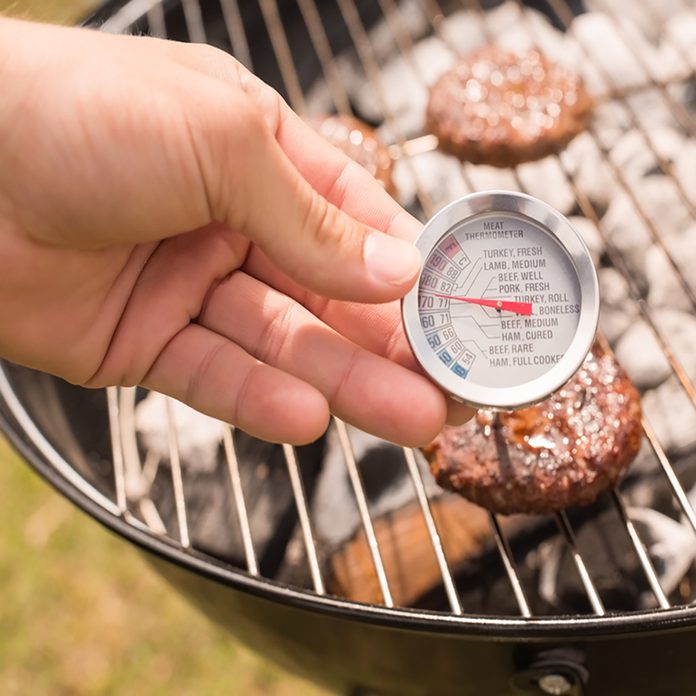
Not Using a Meat Thermometer
Temperature is key when grilling, and meat needs to be heated to the right temperature to kill harmful bacteria. Many grill chefs “eye” their meat to check if it’s done, but we recommend using a meat thermometer to make sure the meat reaches food-safe cooking temperatures.
If you’re not convinced yet, here’s why you (truly) need an instant-read meat thermometer.
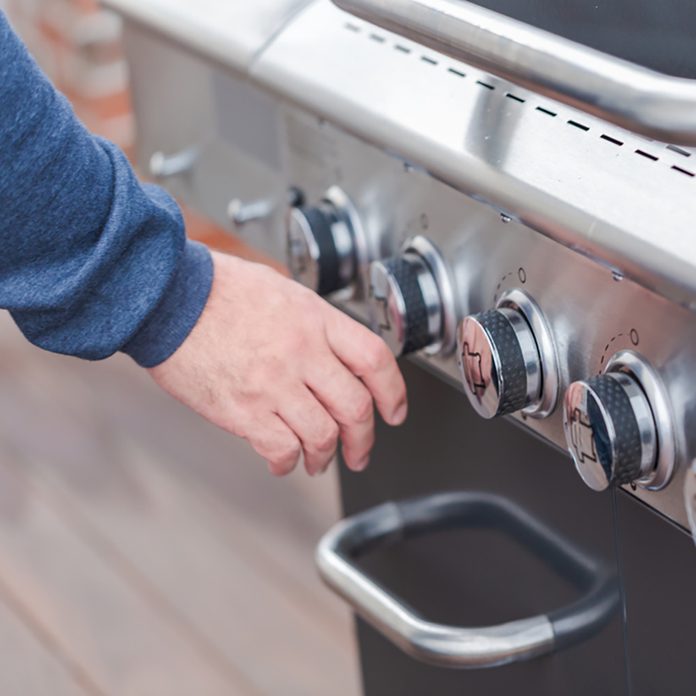
Starting a Gas Grill with the Lid Closed
Lighting your grill with a closed lid can cause a dangerous buildup of gas, creating a fireball. This is easily preventable by keeping your gas grill lid open when lighting it. If the flame goes out, turn the grill and gas off, and wait at least five minutes before relighting. Don’t miss the mistakes we all make when grilling burgers.
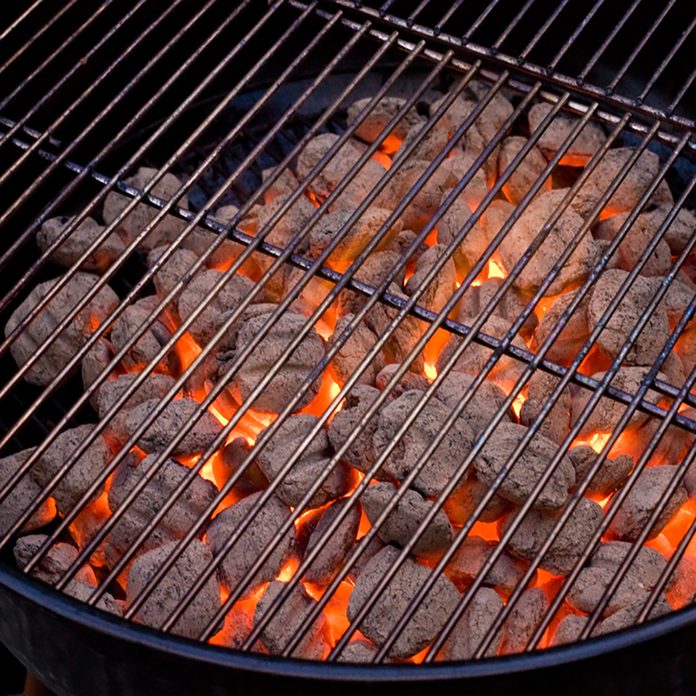
Not Shutting Down the Grill
Don’t get distracted by the delicious food you grilled and forget to properly turn off your grill! As soon as you’re done cooking, turn off the burners on your gas grill and close down the propane supply. If you’re using charcoal, close the air vents to shut off the air supply to the embers. Then, let the coals cool completely before disposing in a metal container.

Not Being Prepared to Put out a Fire
Fires move fast, so it’s important to be prepared. Have baking soda on hand to control a grease fire and a fire extinguisher nearby for other fires. Remember, you never use water to put out a grease fire.
“A great tool for any chef to have on hand is the free Red Cross First Aid App,” Gustafson says. “This app puts instant access to information on handling the most common first aid emergencies—including burns—at your fingertips.”

Cross-Contaminating Food
Food safety is critical when you’re in charge of the grill. Raw meats contain bacteria that can make you sick if they are transferred onto cooked foods, plates or utensils.
Test Kitchen tip: Toss out marinades and sauces that have touched raw meat. Use clean utensils and a clean plate to remove cooked meat from the grill. Wash your hands with soap (here’s how to wash your hands the right way) before and after handling raw meat, poultry and seafood.

Using Lighter Fluid to Light a Charcoal Grill
Dousing charcoal with lighter fluid is another big mistake. It does make it easier to get your charcoal grill started, but it will add a chemical taste to your food and it’s easy for the flame to get out of control. Adding lighter fluid to lit coals is an especially bad idea, as it can easily cause a flare-up. Instead, use a charcoal starter to get things going.
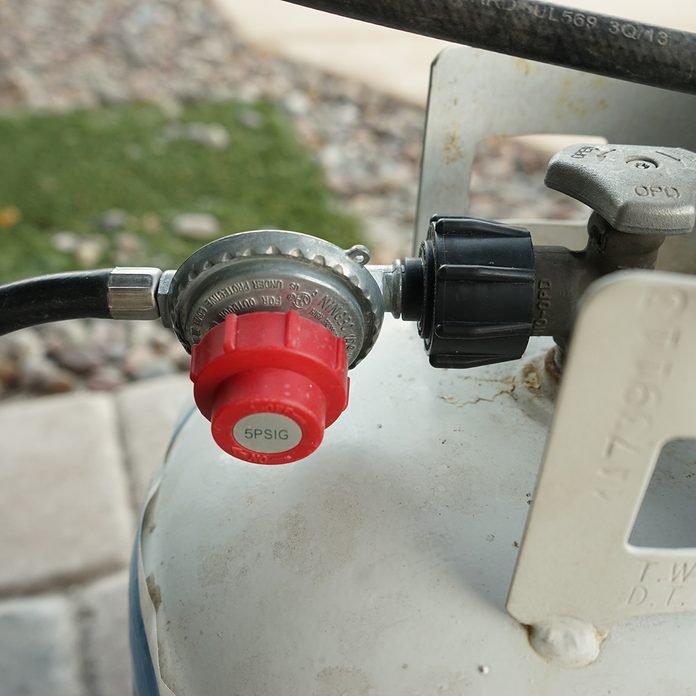
Not Checking for Gas Leaks
It’s important to perform routine maintenance on your grill once or twice a year, depending on how much time you spend at the grill. After cleaning the grill inside and out, add some soapy water to the propane hose. If you see the bubbles growing after turning on the propane, you have a leak in the hose.
Up Next: Check out these top 10 kitchen safety do’s and don’ts.
